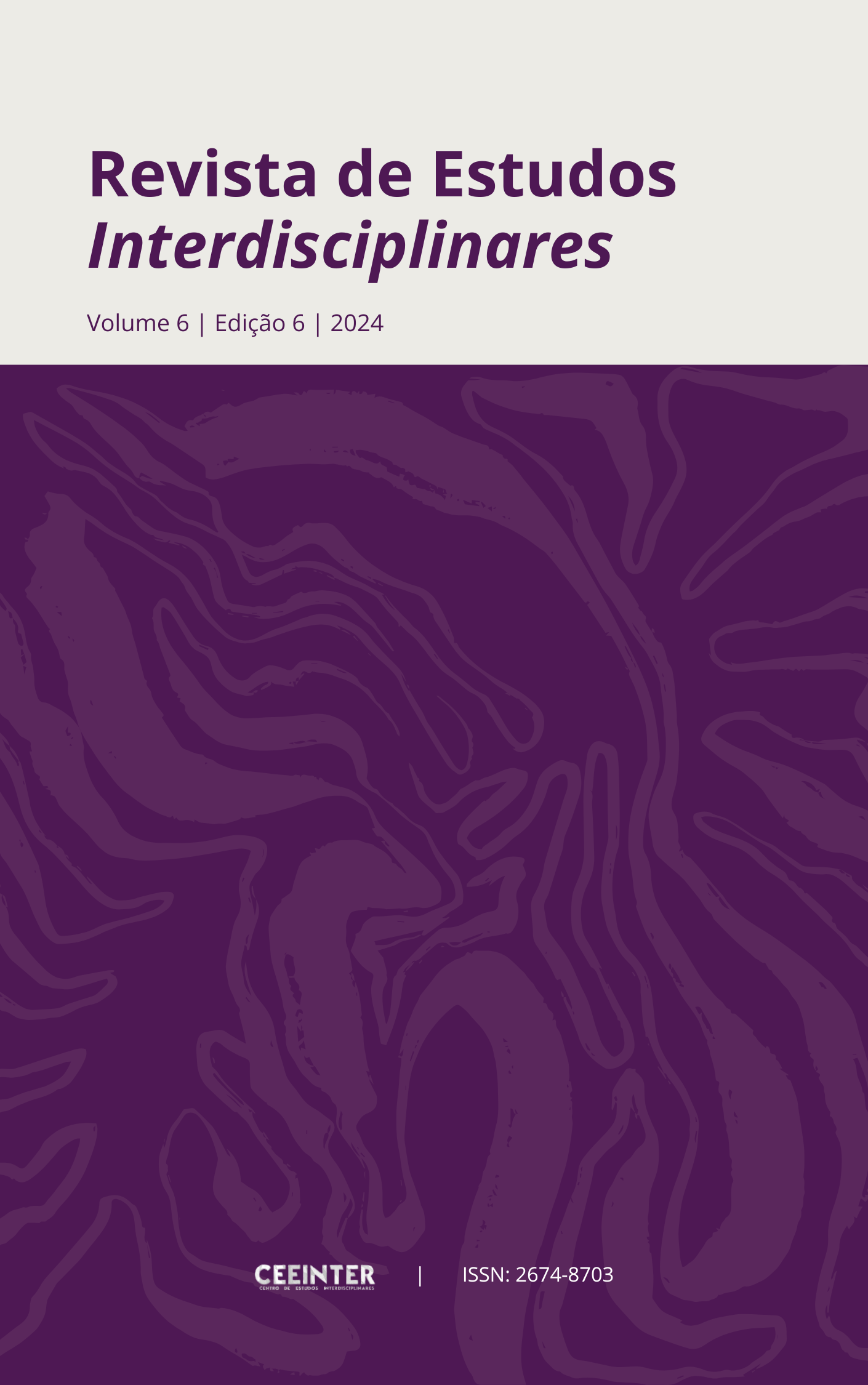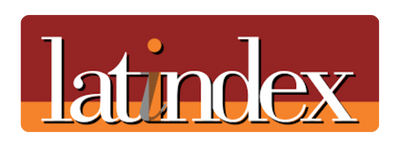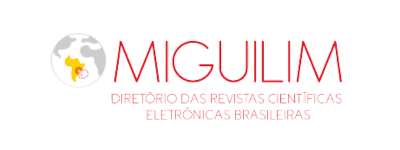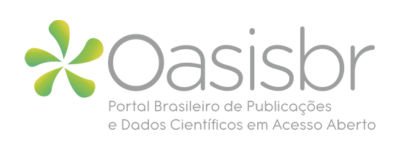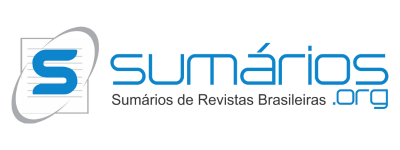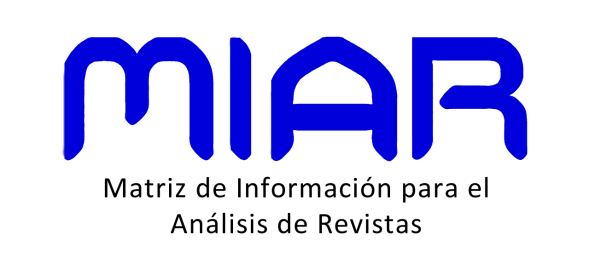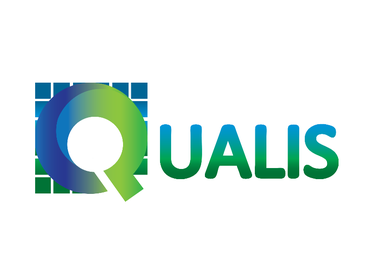A BRIEF APPROACH ON TEACHING-LEARNING PROCEDURES AND SOFTY SKILLS IN CIVIL ENGINEER TRAINING
Visualizações: 395DOI:
https://doi.org/10.56579/rei.v6i6.1192Keywords:
Active Methodologies, Technology in Teaching, Civil Engineering Education, Soft SkillsAbstract
With the intention of sparking students' interest and positioning them as protagonists in the teaching-learning process, there has been an increasing investment in the implementation of new pedagogical approaches. In addition to technical and academic skills, it is essential for students to develop social and personal skills, known as soft skills. In this context, this study aims to explore different active teaching-learning methodologies and emphasize the relevance of interpersonal skills in the formation of civil engineers. Moreover, concepts related to the use of technologies and their contributions to the advancement of education are discussed. The methodology used consists of developing a theoretical foundation based on bibliographic and documentary research. This research concludes that the application of different teaching-learning strategies, combined with the use of technology, can enhance student motivation, facilitate the understanding of civil engineering content, and foster their active engagement in the learning process, an essential factor for their professional development. The relevance of soft skills, fundamental interpersonal and behavioral abilities for employability in the contemporary job market, is also emphasized. These competencies have become increasingly valued by companies, which seek professionals capable of adapting and collaborating in dynamic and challenging environments.
Downloads
References
ALMEIDA MORAIS, I. B.; CARVALHO, G. C. G.; VENDRAMENTTO, O. V. As metodologias ativas e o desenvolvimento das competências do egresso do curso de engenharia civil: uma revisão sistemática. South American Development Society Journal, v. 6, n. 18, p. 206, 2020. DOI: http://dx.doi.org/10.24325/issn.2446-5763.v6i18p206-225
ASBARI, M.; PURWANTO, A.; ONG, F.; MUSTIKASIWI, A.; MAESAROH, S.; MUSTOFA, M.; HUTAGALUNG, D.; ANDRIYANI, Y. Impact of Hard Skills, Soft Skills and Organizational Culture: Lecturer Innovation Competencies as Mediating. EduPsyCouns: Journal of Education, Psychology and Counseling, v. 2, n. 1, p. 101-121, 2020. Disponível em: https://ummaspul.e-journal.id/Edupsycouns/article/view/419
AUNG, S. N.; MEE, M. H.; OHN, K. M. Self-Assurance of Civil Engineering Students on Skills and Attributes Crucial for the Civil Engineering Industry. Journal Contribution, 2020. Disponível em: https://scholar.archive.org/work/tzvn26m4bzfhzjbdqkulqs6bwy/access/wayback/https://s3-eu-west-1.amazonaws.com/pfigshare-u-files/23035712/PaperforICEEIEdited.pdf
BARTELLE, Liane Broilo. A inteligência artificial e a educação superior online. Trajetória Multicursos, v. 14, n. 2, p. 3-17, 2023. Disponível em: http://sys.facos.edu.br/ojs/index.php/trajetoria/article/view/555
BELLONI, M. L. O que é mídia-educação? Florianópolis: Autores Associados, 2005.
BILLINGHURST, M.; DUENSER, A. Augmented reality in the classroom. Computer, 2012, v. 45, n. 7, p. 56-63. DOI: http://dx.doi.org/10.1109/MC.2012.111
BOSCARDIN, J. T.; TEIXEIRA, A. C.; CHIMENTO, W. Aplicação da metodologia peer instruction em disciplina de estruturas do curso de graduação em engenharia civil. Revista de Ensino de Engenharia, v. 40, 2021. DOI: http://dx.doi.org/10.37702/REE2236-0158.v40p383-393.2021
CASTRO, V. S.; OLIVEIRA, S. R. B. Diversity in Software Design and Construction Teaching: A Systematic Literature Review. Education Sciences, v. 13, n. 3, p. 303, 2023. DOI: https://doi.org/10.3390/educsci13030303
DESHPANDE, A. A.; HUANG, S. H. Simulation games in engineering education: A state-of-the-art review. Computer Applications in Engineering Education, v. 19, n. 3, p. 399–410, 2011. DOI: https://doi.org/10.1002/cae.20323
DORNELES, D. M. A formação do professor para o uso das TICS em sala de aula: uma discussão a partir do projeto piloto UCA no Acre. Texto Livre: Linguagem e Tecnologia, v. 5, n. 2, p. 71-87, 2012. Disponível em: https://www.redalyc.org/pdf/5771/577163629009.pdf
DUBEY, R. S.; TIWARI, V. Operationalisation of soft skill attributes and determining the existing gap in novice ICT professionals. International Journal of Information Management, v. 50, p. 375-386, 2019. DOI: https://doi.org/10.1016/j.ijinfomgt.2019.09.006
FERNANDES, A. M. R. Inteligência artificial: noções gerais. Florianópolis: Visual Books, 2003.
FERREIRA FILHO, R. C. M.; CONSOLI, N. C.; SCHNAID, F.; VICARI, R. M. Gestão de recursos educacionais: um relato de caso. Revista Novas Tecnologias na Educação, Porto Alegre, v. 3, n. 1, 2005. DOI: https://doi.org/10.22456/1679-1916.13832
GLASSER, W. Teoria da Escolha: uma nova psicologia de liberdade pessoal. São Paulo: Mercuryo, 2001.
GONÇALVES, D. K. C.; AGUILAR, M. T. P. Metodologias ativas aplicadas na disciplina de saneamento ambiental no curso engenharia civil. Brazilian Journal of Development, [S. l.], v. 5, n. 10, p. 19315–19326, 2019. DOI: https://doi.org/10.34117/bjdv5n10-158
IFFAT, S. An innovative active learning approach in civil engineering education. In: 2023 Fall Mid Atlantic Conference: Meeting our students where they are and getting them where they need to be, Ewing, New Jersey, 2023. DOI: https://doi.org/10.18260/1-2--45115
JEONG, J. S.; GONZÁLEZ-GÓMEZ, D.; CAÑADA-CAÑADA, F.; GALLEGO-PICÓ, A.; BRAVO, J. C. Effects of active learning methodologies on the students’ emotions, self efficacy beliefs and learning outcomes in a science distance learning course. Journal of Technology and Science Education, v. 9, n. 2, p. 217–227, 2019. DOI: https://doi.org/10.3926/jotse.530
KAKEPOTO, I.; LAGHARI, A.; LAGHARI, T. Communication Skills across Engineering Curriculum: A Case Study. Global Language Review, VII, 2022. DOI: https://doi.org/10.31703/glr.2022(VII-I).03
KIRNER, C.; TORI, R. Realidade Virtual: Conceitos, Tecnologia e Tendências. São Paulo. Editora SENAC, 2006.
KURI, N. P.; SILVA, A. N. R.; ANDRADE PEREIRA, M. Estilos de aprendizagem e recursos da hipermídia aplicados no ensino de planejamento de transportes. Revista Portuguesa de Educação, v. 19, n. 2, p. 111-137, 2006. Disponível em: https://www.redalyc.org/pdf/374/37419206.pdf
LOPES, L. M. D., VIDOTTO, K. N. S., POZZEBON, E.; FERENHOF, H. A. Inovações educacionais com o uso da realidade aumentada: uma revisão sistemática. Educação em Revista, v. 35, 2019. DOI: https://doi.org/10.1590/0102-4698197403
LUZ OLIVEIRA, R.; VICENTE, K. B. Estudo sobre o uso de tecnologias digitais no processo de educação utilizando inteligência artificial (IA): benefícios e desafios. Humanidades & Inovação, v. 8, n. 50, p. 202-212, 2021. Disponível em: https://revista.unitins.br/index.php/humanidadeseinovacao/article/view/5433
PEREIRO-BARCELÓ, J.; MELÉNDEZ, C. Introducing BIM into Education: Opportunities and Challenges. In: 4th International Conference on Civil Engineering Education: Challenges for the Third Millennium, J. Turmo, & J.A. Lozano (Eds), 2018, Barcelona, Spain. Proceedings […]. Barcelona: EUCEET, 2018. Disponível em: http://congress.cimne.com/EUCEET2018/admin/files/filepaper/p56.pdf
MESQUITA, P. Y. R.; PEREIRA, J. N. A.; SOUSA, C. A.; MENDES, R. A. A.; OLIVEIRA BARROSO, M. V.; BERTINI, A. A. Temporada de Minicursos: a capacitação como meio efetivo de desenvolvimento técnico e interpessoal de universitários. Práticas Educativas, Memórias e Oralidades-Rev. Pemo, v. 1, n. 2, p. 1-14, 2019. DOI: https://doi.org/10.47149/pemo.v1i2.3634
MINAYO M. C. O desafio do conhecimento: pesquisa qualitativa em saúde. Rio de Janeiro: Abrasco; 2007.
NGANG, T. K.; YUNUS, H. M.; HASHIM, N. H. Soft skills integration in teaching professional training: Novice teachers’ perspectives. Procedia social and behavioral sciences, v. 186, p. 835-840, 2015. DOI: https://doi.org/10.1016/j.sbspro.2015.04.204
OLIVEIRA, V. F. A engenharia e as novas DCNs: oportunidades para formar mais e melhores engenheiros. Rio de Janeiro: LTC, 2019.
PASSOS, D. S.; VENEGA, V. S.; ROCHA, M. L. Softwares para suporte no ensino de engenharia civil: um mapeamento sistemático do uso nas instituições brasileiras. REVISTA CEREUS, v. 9, n. 4, p. 2-18, 2018. DOI: https://doi.org/10.18605/2175-7275/cereus.v9nep2-18
PINHEIRO, G. D.; BOSCARIOLI, C. Reflexões Sobre a Sala de Aula Invertida para o Ensino de Cálculo em Cursos de Engenharia. Jornal Internacional de Estudos em Educação Matemática, [S. l.], v. 16, n. 1, p. 94–103, 2023. DOI: https://orcid.org/0000-0001-7882-6329
PONCIANO, T. M.; GOMES, F. C. de V.; MORAIS, I. C. Metodologia ativa na engenharia: verificação da abp em uma disciplina de engenharia de produção e um modelo passo a passo. Revista Principia, Vol. 34, 2017. DOI: http://dx.doi.org/10.18265/1517-03062015v1n34p32-39
PRINCE, Michael. Does active learning work? A review of the research. Journal of engineering education, v. 93, n. 3, p. 223-231, 2004. DOI: https://doi.org/10.1002/j.2168-9830.2004.tb00809.x
RENOSTO, A. F.; ANTUNES, L. P.; SOMAVILLA, E. M.; RUIZ-PADILLO, A. Estudo das percepções de docentes e discentes sobre a aplicação de metodologias ativas em disciplinas de graduação em Engenharia Civil. Educitec-Revista de Estudos e Pesquisas sobre Ensino Tecnológico, v. 7, p. e170921-e170921, 2021. DOI: https://doi.org/10.31417/educitec.v7.1709
ROCHA CUNHA, M. L.; AMENDOLA, F.; SAMPERIZ, M. M. F.; DA COSTA MOHALLEM, A. G. Evaluation of student perception of the Team-based Learning method (APA-TBL): Instrument construction and validation. Nurse Education in Practice, v. 33, p. 141-147, 2018. DOI: https://doi.org/10.1016/j.nepr.2018.09.008
ROCHA, H. M.; LEMOS, W. M. Metodologias ativas: do que estamos falando? Base conceitual e relato de pesquisa em andamento. In: IX Simpósio Pedagógico e Pesquisas em Educação, 2014, Resende, Brasil. Anais [...] Resende: SIMPED, 2014. Disponível em: https://www.academia.edu/download/56263236/41321569.pdf
SEMENSATO, M. R.; FRANCELINO, L. A.; MALTA, L. S. O uso da inteligência artificial na educação à distância. Revista Cesuca Virtual: Conhecimento sem Fronteiras-ISSN, v. 2318, n. 4221, p. 29-40, 2015. Disponível em: https://scholar.archive.org/work/7ayennzairhrpcccftgm7vix3u/access/wayback/http://ojs.cesuca.edu.br/index.php/cesucavirtual/article/download/935/714
SESOKO, V. M.; NETO, O. M. Análise de experiências de Problem e Project Based Learning em cursos de engenharia civil. In: XLII Congresso Brasileiro de Educação em Engenharia, 2014, Juiz de Fora, MG. Anais [...]. Juiz de Fora: COBENGE, 2014. Disponível em: https://www.abenge.org.br/cobenge/legado/arquivos/5/Artigos/129124.pdf
SILVA, R. R. C. Metodologias passivas versus ativas: estudo de campo num curso de graduação em engenharia civil. Educitec-Revista de Estudos e Pesquisas sobre Ensino Tecnológico, v. 7, p. e136721-e136721, 2021. DOI: https://doi.org/10.31417/educitec.v7.1367
SOUSA, F. R. F.; FEITOSA, M. C. C.; SILVA, H. P.; ARAUJO SILVA, T. Núcleo Integrado de Projetos de Engenharia (NIPE): inovação que associa ensino, pesquisa e extensão no IFPA campus Tucuruí. Revista de Ensino de Engenharia, v. 40, 2021. DOI: https://doi.org/10.37702/REE2236-0158.v40p365-372.2021
SUKARDI, S.; JALINUS, N.; ISLAMI, S.; SAKTI, R. H.; HUSNUZHAN, H.; ZAUS, A. A.; ZAUS, M. A. Soft Skills and Hard Skills Needed In Industry 4.0 For Electrical Engineering Students. Journal of Applied Engineering and Technological Science (JAETS), v. 5, n. 1, p. 142-149, 2023. DOI: https://doi.org/10.1177/00220574211016417
TERÇARIOL, A. A. de L.; AFECTO, R. Metodologias ativas para uma educação inovadora: uma abordagem teórico-prática. Revista Espaço Pedagógico, [S. l.], v. 28, n. 2, p. 835-839, 2022. DOI: 10.5335/rep.v28i2.9002.
ZHAN, Z.; XU, F.; YE, H. Effects of an online learning community on active and reflective learners’ learning performance and attitudes in a face-to-face undergraduate course. Computers & Education, v. 56, n. 4, p. 961-968, 2011. DOI: https://doi.org/10.1016/j.compedu.2010.11.012
Downloads
Published
How to Cite
Issue
Section
License
Copyright (c) 2024 Interdisciplinary Studies Journal

This work is licensed under a Creative Commons Attribution 4.0 International License.
The Journal of Interdisciplinary Studies adopts the Creative Commons Attribution 4.0 International License (CC BY 4.0), which allows for sharing and adapting the work, including for commercial purposes, provided proper attribution is given and the original publication in this journal is acknowledged.

